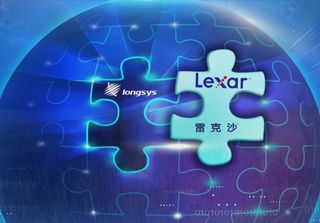Longsys to Launch First Fully China-Produced SSDs, up to 4TB

The popular saying that "today's wars are won with chips" applies to both traditional and economic warfare, and China's reliance on western technology is a strategic weakness that has the country embarking on multi-year initiatives to reduce its reliance on foreign chips.
To that effect, China instituted a plan to develop its own home-grown chips, providing incentives and other measures to indigenous manufacturers. Some of those measures have come to fruition through partnerships with U.S. companies, like AMD's licensing of its x86 architecture to Hygon, and the slow but steadily-increasing number of foreign-owned silicon fabs popping up in China. In either case, China's memory imports, which include the flash memory used in SSDs, have increased 40% since 2016, meaning this segment of the market continues to be a vexing issue for those in China's halls of power.
But what does all of this have to do with SSDs? Well, all the compute power in the world is worthless if you can't store the data, and SSDs are unequivocally the path forward for storage. That makes the recent Longsys announcement that it has developed a 100% China-produced SSD all the more interesting.
SSD performance largely hinges on the SSD controller, a microchip that orchestrates all of the various components, but these small processors are amazingly complex. They also tend to come from Western suppliers. To circumvent that issue, Longsys tapped China-based Yeetor Microelectronics and Maxio Technology's new GK2302 SSD controller design for its new SSDs. These controllers support capacities up to 4TB and come with a few key requirements for the Chinese market: Much like the AMD spin-off processors built by Hygon, these SSDs come with Chinese government-approved encryption and decryption mechanisms to keep out prying Western eyes.
With a China-indigenous SSD controller in hand, the company turned to China-native Yangtze Memory Technologies (YMTC), a subsidiary of the Chinese government-backed Tsinghua Unigroup, for the actual NAND flash. YMTC has its new 64-layer Xtacking 3D flash coming to market in 2019, which meshes well with Longsys's announcement that the fully China-made SSDs will come to market this year. YMTC also plans to move forward to 128-layer flash in 2020, which we expect will make an appearance in Longsys's future generations of SSDs.
Technical details are slight, but we do know that the Longys's as-yet-unnamed SSDs will come with the SATA 6 Gb/s interface and the company claims it will deliver up to 500 MB/s of throughput. That's standard for today's SSDs that saturate the SATA interface. The company claims the SSD controllers are 15% faster than their predecessors and have 6.5% lower power consumption. The company hasn't shared other fine-grained specifications, like random read and write performance. It also didn't share information about a DRAM supplier, likely meaning these are DRAM-less SSDs.
It isn't clear if these China-produced SSDs will ever come to the U.S. market, though it does seem unlikely. Given China's preferential treatment of indigenous manufacturers, these SSDs will likely be confined to the China market. Longsys currently sells its Foresee SSDs and Lexar products (bought from Micron in 2017) in the U.S., including USB flash drives, SSDs, memory cards, and embedded memory products.
Stay on the Cutting Edge
Join the experts who read Tom's Hardware for the inside track on enthusiast PC tech news — and have for over 25 years. We'll send breaking news and in-depth reviews of CPUs, GPUs, AI, maker hardware and more straight to your inbox.

Paul Alcorn is the Managing Editor: News and Emerging Tech for Tom's Hardware US. He also writes news and reviews on CPUs, storage, and enterprise hardware.
-
jimmysmitty ReplyChinese government-approved encryption and decryption mechanisms to keep out prying Western eyes
But to also allow them (China) in, right? -
Reply
^^^ THIS ^^^jimmysmitty said:But to also allow them (China) in, right?
because they do the same as the USA and everyone else does
https://www.tomshardware.com/news/vodafone-huawei-backdoors-wireless-network,39207.html
i guess you just pick the nation you want to spy on you... lol
Most Popular

